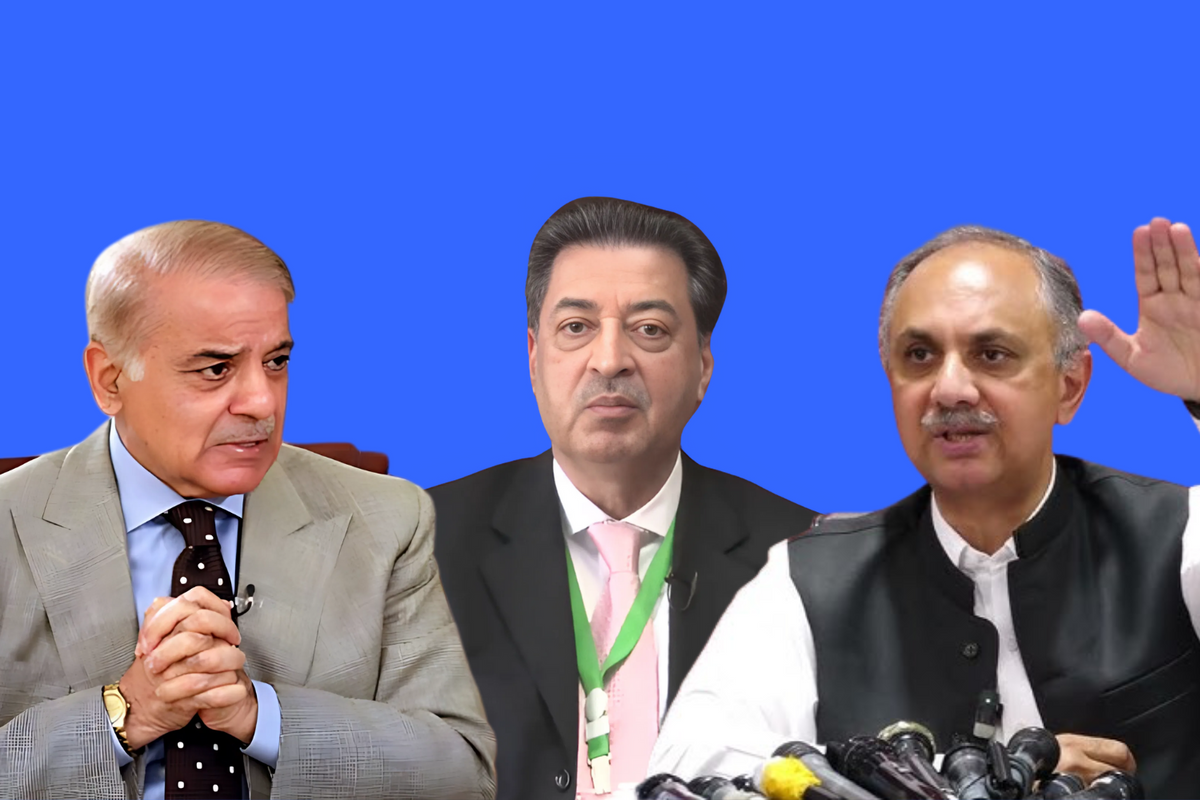Pakistan finally moves to replace top election body’s chief, members
PM Shehbaz invites Leader of Opposition Omar Ayub for consultation over the matter

Javed Hussain
Correspondent
I have almost 20 years of experience in print, radio, and TV media. I started my career with "Daily Jang" after which I got the opportunity to work in FM 103, Radio Pakistan, News One, Ab Tak News, Dawn News TV, Dunya News, 92 News and regional channels Rohi TV, Apna Channel and Sach TV where I worked and gained experience in different areas of all three mediums. My journey from reporting to news anchor in these organisations was excellent. Now, I am working as a correspondent with Nukta in Islamabad, where I get the opportunity of in-depth journalism and storytelling while I am now covering parliamentary affairs, politics, and technology.

Prime Minister Shehbaz Sharif (L), Chief Election Commissioner Sikandar Sultan Raja (C), and Leader of the Opposition Omar Ayub (R).
Nukta
Pakistani Prime Minister Shehbaz Sharif formally invited Opposition Leader Omar Ayub on Wednesday for consultations over the appointment of a new Chief Election Commissioner and two members of the Election Commission of Pakistan (ECP), finally initiating a process that had been delayed since January.
In a letter dated May 16, Shehbaz called on Ayub to participate in consultations under Article 213(2A) of the constitution. The process is required to fill the posts vacated by the Chief Election Commissioner and ECP members from Sindh and Balochistan, whose five-year terms ended on Jan. 26, 2025.
“The present Chief Election Commissioner and members from Sindh and Balochistan completed their constitutional term on January 26,” the letter read. “They are currently holding office under the constitution’s provision that allows them to continue until replacements are appointed.”
The officials whose terms have ended include Chief Election Commissioner Sikandar Sultan Raja, Sindh member Nisar Durrani, and Balochistan member Shah Muhammad Jatoi.
How is ECP chief elected?
Under Article 213 of Pakistan’s Constitution, the Prime Minister and the Leader of the Opposition are required to consult on these high-level appointments. If they fail to reach consensus, each submits three names for every vacant post to a parliamentary committee for final selection.
The 12-member committee, equally divided between government and opposition members, holds hearings and makes the final appointments.
According to the Constitution, candidates for the role of Chief Election Commissioner must be either former Supreme Court judges, technocrats, or senior bureaucrats below the age of 68. ECP members must be retired high court judges, technocrats, or bureaucrats under the age of 65.
Shehbaz’s letter calls for finalizing names for the Chief Election Commissioner and two members, one each from Sindh and Balochistan. Sources within the Prime Minister’s Office indicated that names will be proposed soon after preliminary consultations.
The delay in appointments has raised concerns about the credibility and preparedness of the Election Commission ahead of future elections, particularly as Pakistan faces a volatile political climate.
Ayub confirms receiving PM’s letter
When contacted by Nukta, Ayub’s office confirmed receiving the prime minister’s letter at his residence. However, the opposition leader has yet to respond.
“He is currently consulting with his party leadership and legal experts,” an aide to Ayub told Nukta. “A formal response will be shared with the prime minister soon.”
The Election Amendment Act permits current ECP members to remain in office until their replacements are sworn in, but constitutional experts argue that prolonged delays can erode the institution’s independence.










Comments
See what people are discussing